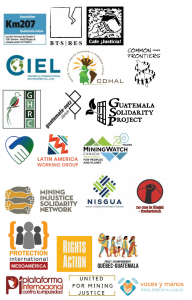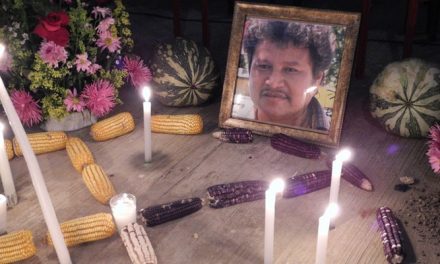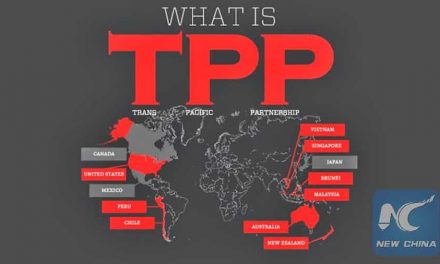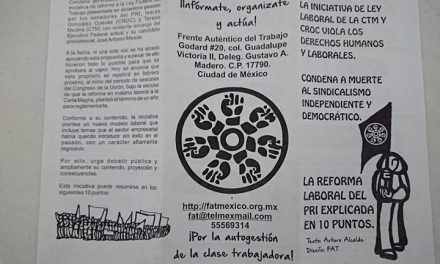Guatemalan State Must Obey Constitutional Court Orders and Suspend Operations at CGN’s Fenix Nickel Project
July 26, 2019
Until free, prior and informed consent and the right to consultation of Maya Q’eqchi
communities is upheld, operations must be suspended to protect indigenous communities
impacted by the mine.
Thursday, July 25, 2019
On Thursday, July 18, 2019, the Guatemalan Constitutional Court ordered the Guatemalan
Nickel Company’s (CGN) Fenix Mine Project to suspend its operations. The suspension is
on a provisional basis and is meant to protect the rights of the Indigenous Maya Q’eqchi
communities impacted by the nickel mining operations until the Constitutional Court issues a
final ruling on a petition that was filed by Maya Q’eqchi human rights defenders in 2018. The
petition alleges that Q’eqchi communities were not consulted and that their right to full
participation in decisions that could impact them was violated when the Ministry of Energy
and Mines granted an exploitation licence to CGN in April 2006. CGN is currently a
subsidiary of Solway Investment Group, the world’s largest privately owned nickel producer
headquartered in Switzerland with global operations. At the time that the license was
granted, it was owned by Canadian company Skye Resources. In 2008, Skye Resources
amalgamated with Canada’s Hudbay Resources, who later sold to Solway in 2011.
As a result of last week’s Constitutional Court decision, petitioners and their supporters have
already been subject to harassment and intimidation. Locally, the situation for the Q’eqchi
petitioners is deeply concerning. In a press statement, CGN/Solway assured that the
decision would “increase conflict and violence in the area” while company Manager and
Military Colonel Maynor Alvarez took to national television. The mayor of El Estor, Rony
Mendez, used social media to polarize local communities by promoting a similar discourse.
In the days since the ruling, petitioners and their lawyers have received threatening
messages via phone and social media.
Since the Ministry of Energy and Mines granted CGN/Skye the licence to operate the Fenix
Project in April 2006, Indigenous communities have lost territory, land and livelihood. Others
have been murdered, raped and left seriously injured, and forced to leave their lands.
Q’eqchi communities, human rights defenders and national and international journalists and
academics have been repeatedly targeted by violence, defamation and malicious
prosecution.
In an effort to divert attention from non-compliance with the consultation as required by law
in order to obtain resource exploration and exploitation licenses in Guatemala, a group
representing CGN/Solway service providers gave a press conference that focused on the
economic impacts of the court order. Likewise, in a public statement, Solway Investments
noted that it would “take all possible measures not to halt…operations to the extent
that this is possible within the legal framework.” The President of the Chamber of
Agriculture, Commerce, Industry and Finance (CACIF), the country’s most influential
economic lobby, wrote in a tweet that the decision was, “terrible and irresponsible.” It’s
important to note that since 2007, CGN (and parent companies, Skye, Hudbay and Solway)
have benefited from significant tax exemptions through Ministry of the Economy Resolution
#843, File #487-2007, that categorized CGN/Skye as a beneficiary of the Law for the
Promotion and Development of Export and Maquila Activities. This classification has allowed
CGN (through parent companies Skye Resources, Hudbay Minerals and Solway
Investments) to import materials and equipment duty-free; it also exempts CGN from paying
value-added tax, which raises doubt on just how much the company is remitting to the
Guatemalan state.
There is already legal precedent regarding the suspension of mining operations while
consultation is carried out. In 2018, the Constitutional Court made a definitive ruling on a
constitutional challenge to suspend the Escobal silver mine and Juan Bosco exploration
permit, operated by Minera San Rafael (MSR), then a subsidiary of Canadian/US Tahoe
Resources (recently acquired by Pan American Silver), until a consultation was completed
with impacted Indigenous Xinka communities in the departments of Jalapa, Jutiapa and
Santa Rosa. The MSR and CGN cases have clearly shown that the granting of mining
licences represents a structural problem that has negatively affected diverse social groups
and in particular, Indigenous Peoples. The Constitutional Court rulings point to the need to
make structural changes to the way that exploration, exploitation and environmental licenses
are granted for proposed extractive projects in Guatemala.
In February 2019, the Supreme Court ruled that the rights of the Maya Q’eqchi petitioners
impacted by the granting of the Fenix Project had been violated and ordered the State to
consult four municipalities in the departments of Alta Verapaz and Izabal that were impacted
by CGN mine operations. On Thursday, July 25, a public hearing will be held at the
Constitutional Court before the plenary makes a definitive decision on whether to suspend
the operations while the Court-ordered consultation with Q’eqchi communities is carried out.
Therefore:
- We reiterate our support to Indigenous Maya Q’eqchi communities who are
defending their legitimate right to be consulted, give consent and have their rights be
protected, as outlined in the Guatemalan Constitution, Convention 169 of the
International Labor Organization, the United Nations Declaration on the Rights of
Indigenous Peoples and the American Convention on Human Rights; - We denounce intimidations, threats and violence targeted at Maya Q’eqchi
Indigenous rights defenders, their lawyers and the organizations that accompany
them by government and business actors. We reiterate our grave concern for
violence and repression that could result from campaigns to stigmatize Q’eqchi rights
defenders and their lawyers as a result from the legally binding suspension of the
Fenix mining operation; - We remind the State that it has the responsibility to comply with Constitutional Court
orders and immediately take action to suspend operations at the Fenix Project as
ordered; - We exhort that the Guatemalan State act on its duties to protect, respect, and
establish guarantees for the realization of the rights of Indigenous peoples
threatened by the interests of companies in the territories in which they live; - We remind the company that, in accordance with the Guiding Principles on Business
and Human Rights, it must act with due diligence on human rights; - We call on the national and international community to stay alert to the situation and
accompany, if possible, the public hearing on July 25 at 9:30am as a means to
ensure transparency and access to justice for impacted Indigenous communities.

Background:
In 2005, Canadian mining company Skye Resources, strongly supported by the Canadian
government, revived the Fenix Project. In 1965, the mining operation was originally initiated
by Canadian-owned INCO mining company through its subsidiary, Exmibal, which later
changed its name to the Guatemalan Niquel Company (CGN). Though trying to distance
itself from INCO/Exmibal’s ties to grave human rights abuses during the years of the
Guatemalan genocide, Skye Resources promoted the Fenix Project alongside constant
violence against the Q’eqchi communities impacted by its operations.
Just six months after the license was allegedly illegally granted, Guatemalan state security
forces, at the request of CGN/Skye, forcibly evicted six Q’eqchi communities. Puerto Barrios
jurisdictional courts authorized the evictions in violation of national and international law, but
indigenous communities had no opportunity to challenge the ruling as their homes were
destroyed immediately after notification. The National Civil Police and Guatemalan military,
CGN/Skye’s private security forces, and paramilitary forces with which they collaborated,
directly participated in the violent and illegal evictions, during which women were raped and
homes burned.
Despite these acts of repression and violence, the Indigenous Maya Q’eqchi opposition to
the Fenix Project has been constant for decades. In 2009, after CGN was owned by
Canadian company Hudbay Minerals, witnesses attest that Adolfo Ich Chaman, a teacher
and leading voice in the demand that Q’eqchi communities be consulted in accordance with
Guatemalan and international law, was shot by the CGN/Hudbay’s chief of security. That
same day, mine security opened fire on innocent bystanders and left German Chub
paralyzed.
Years later, in 2017, after CGN was sold to Solway, Q’eqchi fisherman Carlos Maaz was
killed during the brutal repression of a peaceful protest against the CGN/Solway nickel
processing plant’s impact on the environment and the livelihood of Q’eqchi fishermen. The
brutal violence against Q’eqchi rights defenders has been constant since the license to mine
the Fenix Project was granted. To date, there have been no convictions for any of these
serious mining-linked crimes.
At the same time, threats and pressure by the CGN/Solway mining company has led to the
criminalization of members of the Artisanal Fisher’s Association and recognized Q’eqchi
human rights defenders. Eduardo Bin Poou, Cristobal Pop, Tomas Che Cucul and Vicente
Raxand and others have been forced to face legal proceedings after charges were brought
against them by CGN/Solway. Violence and criminalization targeted at journalists and
censorship of the press have also been clearly documented, including the current criminal
proceedings against Carlos Ernesto Choc by CGN/Solway and the 2017 arrest and
detention of Jerson Antonio Xitumul, imprisoned on trumped up charges , as reported by the
Office of the United Nations High Commissioner for Human Rights, OHCHR, in Guatemala
and the institution of the Human Rights Ombudsman, last May.




